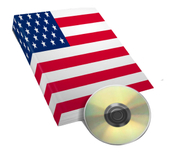 If you are an importer, you must command your supply chain. You must know what you are importing, where you are importing through (ports of entry), and the agents you use. Record keeping varies tremendously among importers. Even seasoned importers with sound compliance programs may be at a disadvantage vis-a-vis enforcement officials. US Customs and Border Protection (CBP) retains records of all your filed import activity. You may request government records through the Freedom of Information Act (FOIA). One of the first steps in setting up your import compliance program or in improving an existing one is to ask for your entry information under FOIA. The FOIA program for importers is called Importer Trade Activity or ITRAC. Your ITRAC data provides you with a wealth of information, including: Port of Lading/Unlading, Country of Origin, Exams, Entry Date, Special Programs, and Liquidation Date. CBP delivers your ITRAC data on a CD formatted on Microsoft Access. Importers should request your ITRAC at least annually. Members of the Importer Self-Assessment Program get their ITRAC data delivered automatically to them for free. Many of the improvements may go beyond customs compliance, and can benefit your company’s bottom line. For example, you may learn that your company is using too many customs brokers, that your importer identification number/tax i.d. is being used without your authorization, and that business units are importing without proper authorization. If you have questions about ITRAC, please let me know. Our lawyers can request the ITRAC data on your behalf, help you analyze trends and problems areas, and suggest and implement improvements.
3 Comments
|
Oscar Gonzalez
Principal and a founding member of GRVR Attorneys. Archives
September 2016
Categories
All
|
- Home
- Who we are
-
Our Practice
- Customs and Import
- 301refunds
- Export
- Litigation
- Section 232 and 301 Tariffs
- Outsource Your Classification
- CBP Audits
- Fines, Penalties, Forfeitures, and Seizures
- Customs Brokers
- C-TPAT >
- Foreign-Trade Zones
- Antidumping and Countervailing Duties
- Intellectual Property RIghts
- Foreign Corrupt Practices Act
- Manifest Confidentiality
- Contracts and Incoterms
- False Claims Act and Whistleblower
- Blog
- Resources
- Calendar and Events
- Best Customs Broker Exam Course
- Contact
 RSS Feed
RSS Feed
